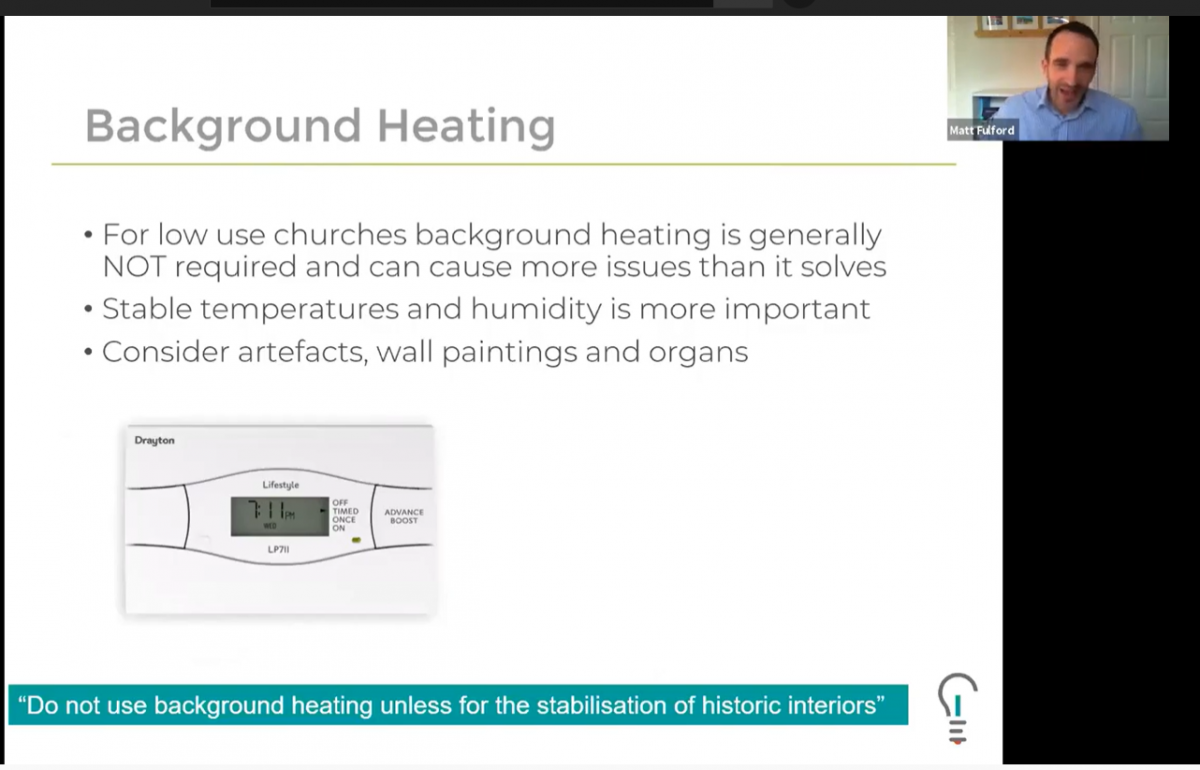Churches ask us this question every year at this time. The thinking on this has changed and the answer is usually “no”.
Churches that only have a few services a week often turn the heating on for a couple of hours a day, “to preserve the building”. This is often from 8-10, but the buildings are coldest from around 2-4 a.m., so that’s also common. In one of our buildings, that’s at a cost of around £20 a day.
This is usually unnecessary. You can see someone more authoritative than we are saying that here (from 23:03):
By “stabilisation of historic interiors”, they mean special things like organs, frescoes and oil paintings – but even so, whacking the heating on high just like if you’re trying to heat for people isn’t the best approach. Buildings and their contents like nice steady conditions, not big temperature swings.
It’s better and cheaper to have controls that include a setback temperature, which will enforce a minimum temperature in the space, and asking your conservation architect what that temperature should be. 7-8C is a frequent choice for common-or-garden buildings because in the UK, below that is when you risk the relative humidity being so high you get condensation inside. If you need to change your controls to do this, you would probably also benefit from ones with modern energy efficiency features. For instance, controls can now learn how early to turn the heating on. This is especially useful in venues that only heat for occasional events.
And a thought for our engineers: if the heating is coming on because of the setback temperature, the boilers should come on at a low flow temperature, not a high one, but in our experience, they don’t. It ought to be possible. Boilers can come on low if they know the reason is protect themselves. And one last thought: building preservation is one of the reasons why we’re so heartened by the future shift to heat pumps. They’re gentler by nature and are likely to make our organs much happier as a result.
